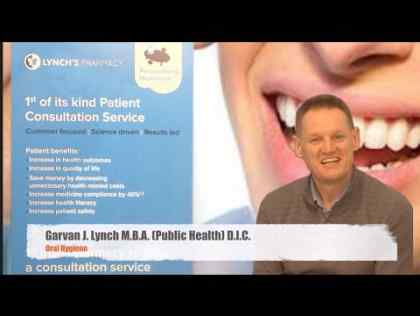
What is it?
- Lack of saliva is a common problem that may seem little more than a nuisance, but a dry mouth can affect both your enjoyment of food and the health of your teeth. The medical term for dry mouth is xerostomia.
- Dry mouth can cause problems because saliva helps prevent tooth decay by limiting bacterial growth and washing away food and plaque. Saliva enhances your ability to taste and makes it easier to swallow. In addition, enzymes in saliva aid in digestion.
- Although the treatment depends on the cause, dry mouth is often a side effect of medication. Dry mouth may improve with an adjusted dosage or a new prescription.
Symptoms
If you're not producing enough saliva, you may notice the following signs and symptoms:
- Dryness in your mouth
- Saliva that seems thick, stringy
- Sores or split skin at the corners of your mouth
- Cracked lips
- Bad breath
- Difficulty speaking, swallowing
- Sore throat
- An altered sense of taste
- A fungal infection in your mouth
- Increased plaque, tooth decay and gum disease
In women, dry mouth may result in lipstick adhering to the teeth.
Causes
Dry mouth has numerous causes, including:
- Medications. Hundreds of medications, including some over-the-counter drugs, produce dry mouth as a side effect. Among the more likely types to cause problems are some of the drugs used to treat depression and anxiety, antihistamines, decongestants, high blood pressure medications, anti-diarrheals, muscle relaxants, drugs for urinary incontinence, and Parkinson's disease medications.
- Aging. Getting older isn't a risk factor for dry mouth on its own; however, older people are more likely to be taking medications that may cause dry mouth. Also, older people are more likely to have other health conditions that may cause dry mouth.
- Cancer therapy. Chemotherapy drugs can change the nature of saliva and the amount produced. Radiation treatments to your head and neck can damage salivary glands, causing a marked decrease in saliva production.
- Nerve damage. An injury or surgery that causes nerve damage to your head and neck area also can result in xerostomia.
- Other health conditions. Dry mouth can be a consequence of certain health conditions — or their treatments — including the autoimmune disease Sjogren's syndrome, diabetes, Parkinson's disease, HIV/AIDS, anxiety disorders and depression. Stroke and Alzheimer's disease may cause a perception of dry mouth, even though the salivary glands are functioning normally. Snoring and breathing with your mouth open also can contribute to the problem.
- Tobacco use. Smoking or chewing tobacco can increase dry mouth symptoms.
Diagnosis
To determine if you have dry mouth, your doctor or dentist likely will examine your mouth and review your medical history. Sometimes you'll need blood tests and imaging scans of your salivary glands to identify the cause.
Treatments and drugs
If your doctor believes medication to be the cause, he or she may adjust your dosage or switch you to another medication that doesn't cause a dry mouth. Your doctor may also consider prescribing pilocarpine (Salagen) to stimulate saliva production.
Lifestyle remedies
When the cause of the problem either can't be determined or can't be resolved, the following tips may help improve your dry mouth symptoms and keep your teeth healthy:
- Chew sugar-free gum or suck on sugar-free hard candies.
- Limit your caffeine intake. Caffeine can make your mouth drier.
- Avoid sugary or acidic foods and candies because they increase the risk of tooth decay.
- Brush with a fluoride toothpaste. (Ask your dentist if you might benefit from prescription fluoride toothpaste.)
- Use a fluoride rinse or brush-on fluoride gel before bedtime.
- Don't use a mouthwash that contains alcohol because these can be drying.
- Stop all tobacco use if you smoke or chew tobacco.
- Sip water regularly.
- Try over-the-counter saliva substitutes. Look for ones containing carboxymethylcellulose or hydroxyethyl cellulose, such as Biotene Oralbalance.
- Avoid using over-the-counter antihistamines and decongestants because they can make your symptoms worse.
- Breathe through your nose, not your mouth.
- Add moisture to the air at night with a room humidifier.
Alternative medicine
Studies of acupuncture have shown that acupuncture may be helpful for people with dry mouth stemming from various causes. This procedure involves the use of fine needles, lightly placed into various areas of the body, depending on your area of concern. While this treatment looks promising, researchers are still studying exactly how this therapy works for xerostomia.
References:
http://www.nidcr.nih.gov/oralhealth/Topics/DryMouth/DryMouth.htm
http://www.medicinenet.com/dry_mouth/article.htm
http://www.irishhealth.com/article.html?con=462
http://www.nhs.uk/conditions/dry-mouth/Pages/Introduction.aspx


